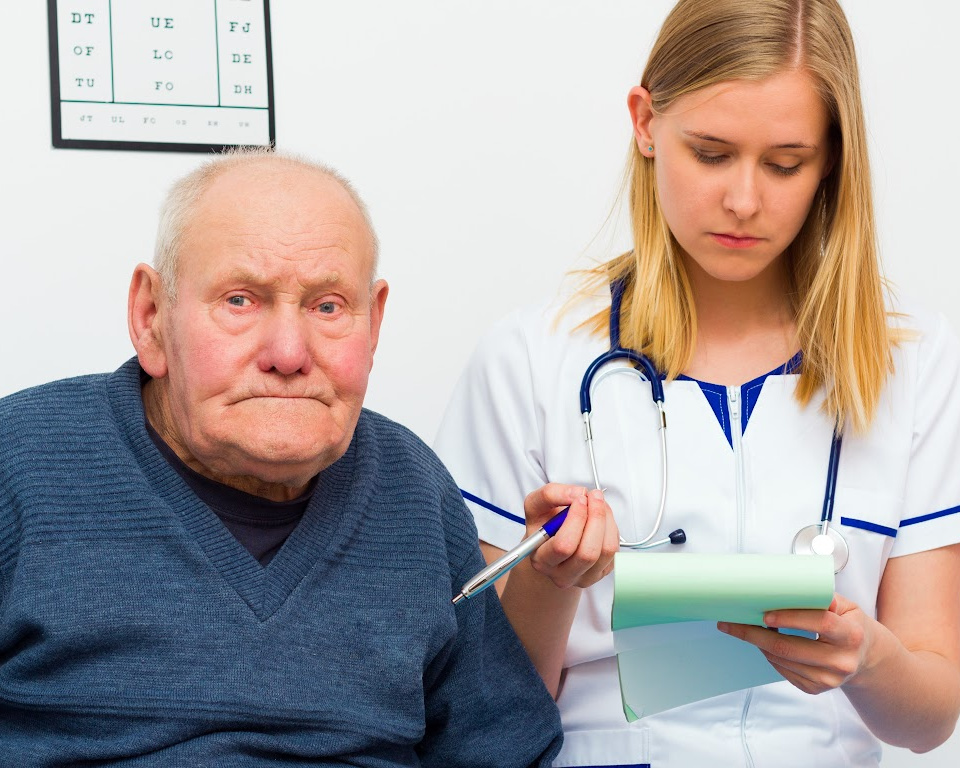It's crucial to know that students with autism and ADHD need special study strategies. Autism…

Why is Non Verbal Communication is Important in Healthcare
In the sphere of healthcare, communication plays a critical role. Notably, nonverbal communication comprising of aspects such as body language, facial expressions, eye contact, tone of voice, and posture is of paramount significance. The importance of body language in healthcare, for instance, cannot be overstated as it serves as a reflection of both healthcare professionalism and empathetic patient engagement.
A considerable portion of our daily interactions hinge on nonverbal cues. Thereby, adopting specific nonverbal communication techniques for healthcare professionals can greatly affect the quality of care provided and the depth of relations established with patients. Particularly in stressful situations, healthcare providers must delicately maintain an open, non-judgmental posture, make consistent eye contact and convey genuine concern to create a comforting environment for the patient.
The usage of technology in healthcare such as electronic health records (EHRs) should be integrated in a manner that does not impede nonverbal communication practices. A balanced approach to technological incorporation can yield extensive nonverbal communication benefits in healthcare settings, ultimately enhancing patient care through nonverbal communication.

The Pivotal Role of Nonverbal Communication in Patient-Centered Care
The art of effective communication in healthcare extends beyond verbal exchanges. The nonverbal aspects often play an even more crucial role in conveying empathy, fostering mutual understanding, and building trust.
Understanding Beyond Words: The Prevalence of Nonverbal Cues
Noted research indicates that majority of our communication relies on nonverbal cues. Pioneering studies by Charles Darwin and Dr. Albert Mehrabian echo this sentiment by revealing how facial expressions, gestures, postures, and other nonverbal signals frequently override the impact of spoken words. These components can either reinforce, contradict, complement, substitute, or accentuate verbal communication, which underscores their importance.
Building Trust and Rapport with Patients Through Nonverbal Interactions
In healthcare, nonverbal communication is a cornerstone in establishing both professional and personal bonds with the patients. Healthcare communication skills like mirroring or matching a patient’s actions, making and maintaining eye contact, and demonstrating active listening through nodding or leaning forward, can profoundly influence the patient-practitioner dynamics. This is particularly essential when healthcare professionals are interacting with patients who have limited English proficiency (LEP).
Nonverbal Sensitivity: Enhancing Situational Awareness in Clinical Settings
The ability to decipher nonverbal cues and respond effectively is at the heart of successful healthcare communication. This high level of nonverbal sensitivity helps health care providers interpret the needs and emotions of their patients, enabling them to provide more compassionate and effective care. Mastery over such invaluable communication skill can make a massive difference in patient satisfaction and treatment outcomes.

Why is Non Verbal Communication Important in Healthcare
The importance of nonverbal communication in healthcare cannot be overstated. It significantly influences the satisfaction of patients, the outcome of treatments, and the overall quality of care. Today, we’ll delve into some fascinating insights about the profound role that nonverbal cues play in medical settings.
Studies have consistently shown a strong positive correlation between physicians’ nonverbal communication skills and both patient satisfaction and health outcomes. It’s not just about what’s being said, but how it’s delivered. Consider the tone of voice, facial expressions, posture, or the gestures expressed by healthcare professionals.
In one notable study, a doctor’s tone of voice turned out to be a very reliable indicator of his or her capacity for empathy, making it a critical aspect of the importance of body language in healthcare. This emotional resonation can entirely shape patients’ perception and experiences. Furthermore, research has even suggested that the tone of voice can predict a doctor’s malpractice history.
Physical therapists and their use of nonverbal communication have been found to influence the health outcomes of geriatric patients. As we start to see, when it comes to nonverbal cues in medical settings, it’s not just about the patient and doctor interaction, it underpins all aspects of healthcare.
An interesting direction coming out of linguistics and health research encourages patients to ask questions to healthcare professionals. This initiative has shown improvements in patient-doctor consultations, further demonstrating the resounding nonverbal communication benefits in healthcare.
Conclusion
In the realm of healthcare, facilitating effective communication serves as the backbone of quality patient care. This particularly holds true for nonverbal communication that can immensely impact patient experiences and outcomes.
Strategies for Improving Nonverbal Communication among Healthcare Professionals
There are several strategies healthcare professionals can adopt to enhance their nonverbal communication skills. These include adopting a less domineering presence by sitting instead of standing during consultations, leaning forward to depict engagement and interest, and employing an open posture to prevent appearing distant or indifferent. These abovementioned methods have shown a significant increase in the nonverbal communication benefits in healthcare. Moreover, in today’s digitized world, the rising use of technology in medical settings calls for healthcare professionals to balance their interactions with electronic devices in a way that promotes nonverbal engagement with patients.
Nonverbal Communication and Its Impact on the Future of Healthcare Delivery
Looking ahead, the prospect of healthcare delivery is likely to be massively influenced by nonverbal communication. Nonverbal cues not only accentuate verbal communication but also play a vital role in fortifying patient relationships, boosting patient satisfaction, and improving adherence to treatment plans. Thus, it has become integral to enhancing patient care through nonverbal communication. As healthcare continues to evolve, continued education and in-depth understanding of the profound influence of nonverbal cues is anticipated to be an essential requisite for healthcare providers. Their ability to effectively utilize nonverbal communication skills will be instrumental in their adaptation and proficiency in the changing medical landscape.
FAQs
Why is non verbal communication important in healthcare?
Nonverbal communication is essential in healthcare settings as it significantly impacts the quality of care, patient satisfaction, and treatment outcomes. Subtle forms of nonverbal communication such as eye contact, body language, tone of voice, and facial expressions can convey empathy, understanding, and respect, which can help build trust and rapport with patients.
How does nonverbal communication play a role in patient-centered care?
Nonverbal communication is pivotal to patient-centered care as it helps healthcare professionals interpret and respond to patients’ emotions and needs effectively. These nonverbal cues can contribute to building trust, indicating empathy, and fostering better understanding between healthcare providers and patients.
How can healthcare professionals enhance their nonverbal communication skills?
Healthcare professionals can enhance their nonverbal communication skills through strategies such as maintaining an open posture, leaning forward to express interest, managing interactions with electronic devices, and sitting rather holding a standing posture during consultations. It’s important to display nonverbal gestures that do not appear domineering, judgemental, or disinterested to the patients.
What is the impact of nonverbal communication on the future of healthcare delivery?
As patient-centered care becomes more prominent, the significance of nonverbal communication in healthcare will likely increase. Effective nonverbal communication can help in fostering stronger patient relationships, improving patient satisfaction, and enhancing adherence to treatment plans. Healthcare professionals will need to continue their education and awareness about nonverbal cues and their impacts to adapt to this evolving healthcare landscape.
What is the role of nonverbal cues in medical settings?
Nonverbal cues in medical settings play a crucial role in enhancing effectiveness and compassion in care delivery. By being sensitive to nonverbal cues, healthcare providers can better grasp and respond to the needs and feelings of their patients. It also aids in building trust and rapport further enhancing the overall patient experience.



This Post Has 0 Comments